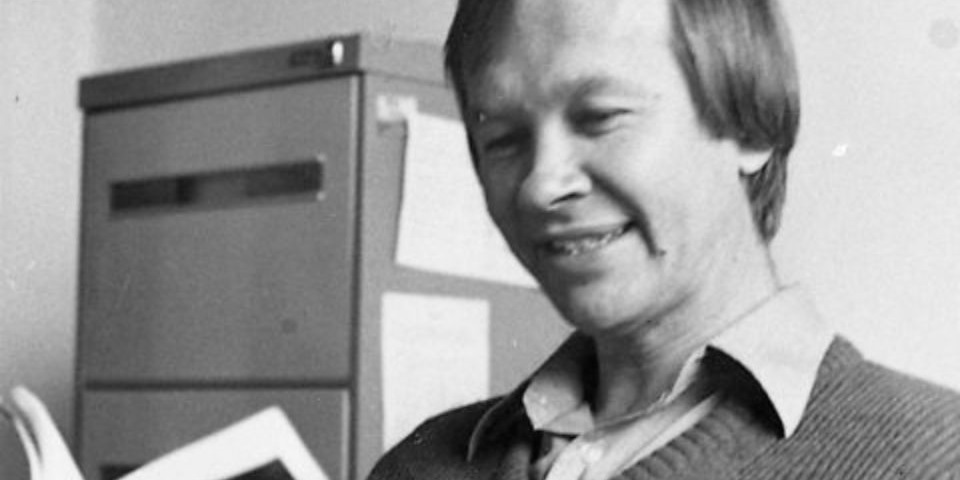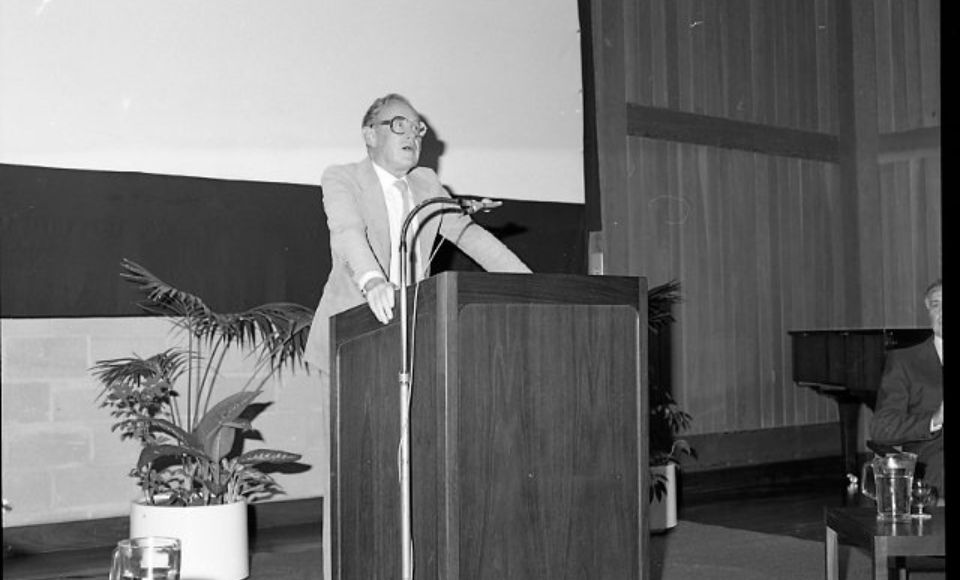Return to Our Story page
News
Keith Roby’s legacy in community science

In many ways, Murdoch University foundation lecturer Dr Keith Roby was ahead of his time.
If he were alive today, he would see that the pioneering approach to science that he championed in Murdoch’s early years has become a mainstay, not only at Murdoch, but the world over.
Dr Roby’s colleague Dr Christine Ledger wrote that although he found his role as Senior Lecturer in chemistry very satisfying: “the question remained in his mind: 'how to combine the scientific, social, and theological aspects [of his work] into one, rather than seeing them as three compartments, the latter two relegated to out-of-hours activity' (Keith's own words).”
Dr Roby believed science and religion could be complementary rather than contradictory and dreamt of ‘Community Science, or science as it is transformed and applied to the community's real and human needs.
He once said that just before moving to Murdoch he had been caught by the World Council of Churches’ vision of a 'just, participatory and sustainable society' and saw it as the guiding framework for the work he wanted to do going forward.
Sadly, Dr Roby passed away in November 1981, aged 40. However, his impact far outweighed the short time he was at Murdoch.
The Keith Roby Memorial Lecture in Community Science was established in 1982 as an annual, free public science lecture made possible by the generous support of donors.
Each year a distinguished speaker is invited to deliver a lecture that builds on Dr Roby's pioneering life's work, of directing science and technology towards satisfying the fundamental needs of humankind.
The inaugural lecture was delivered by distinguished University of Sydney biologist Professor Charles Birch who had taught Dr Roby but became a colleague, mentor and close friend who supported Keith's intellectual progress.

Professor Birch’s lecture was titled ‘Born again: science and technology’.
“The curious title of my lecture is that there is not just one sort of science and technology. We have a choice. And what kind of science and technology a society practices is a product of ideology, of politics, of economics. and we can choose,” Professor Birch said.
“The modern industrialised world has made its choice, the choice that every one of every two scientists and technologists in the modern world is engaged in perfecting the instruments of war.
“I mean, that is a deliberate choice, a tragic choice, which in fact brands scientists and technologists as amongst the most destructive people in the world today.
“And that is one reason for the public disenchantment with science. Lest, to use Churchill's words, the Dark Ages return on the gleaming wings of science.
“But there is no scientific or technological imperative that determines the directive of science, direction of science and technology. It's a matter of public policy. Human progress has never been on the wings of inevitability.”
Professor Birch spoke about the role global political leaders played in determining societal progress, saying then US President Ronald Reagan, British Prime Minister Margaret Thatcher and Australian Prime Minister Malcolm Fraser’s call to return to old fashioned basics would “prevent anything novel happening in this wonderful world of ours”.
He encouraged his audience to consider a different approach, and to continue the work Dr Roby began.
"I think that a lamp has been lit in this university, which could become a beacon for the rest of the world. Science had its birth in ancient times. It was reborn in the 16th century. It could be reborn again.
“Now, the commitment of this university to community science is part of an ongoing program. Together with this lectureship is a commitment to carry out the work that Keith was instrumental in promoting in this place.
“What I remember most and always it's a constant, memory, is Keith's smile, and there was something about his smile, and it was very beckoning and anticipatory.
“And I think this was part of his great appeal to students. It was always welcoming, and it seemed to me always confident to say, yes, we can do something about that.”
